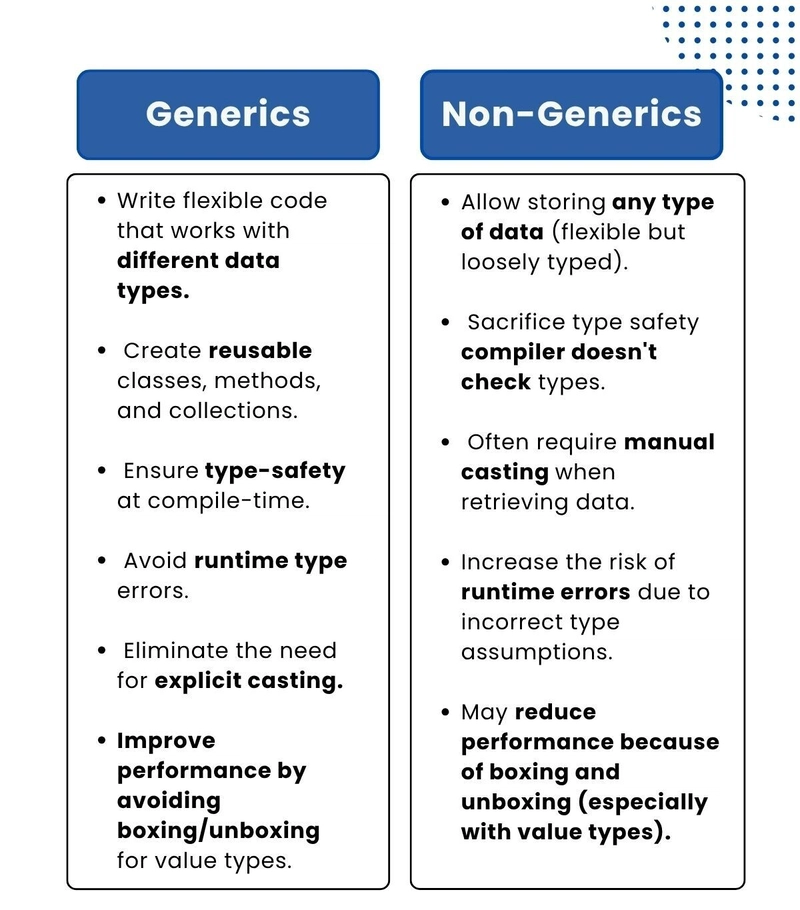In C#, Generics and Non-Generics represent two different approaches to handling data types in collections and methods. Understanding the difference helps you write type-safe, efficient, and scalable code.
Generics
- Type-Safe: You define the data type when using it.
- No Casting Needed: Prevents runtime errors due to invalid type casting.
- Reusable: Write code that works with any data type.
- Compile-Time Checking: Errors are caught early.
Non-Generics
- Not Type-Safe: Uses object, so any type can be added.
- Casting Needed: You must cast when retrieving items.
- Risky: More prone to runtime errors.
- Less Performance: Boxing/unboxing happens for value types.
Understanding Generics vs Non-Generics in C#
Conclusion
Using Generics in C# provides strong type safety, better performance, and cleaner, reusable code. Unlike Non-Generics, which rely on casting and are more error-prone at runtime, Generics allow developers to catch type-related issues at compile time and avoid unnecessary boxing and unboxing.
Whenever possible, prefer Generics for collections, methods, and classes to write robust, maintainable, and efficient applications in C#.







Top comments (2)
Love when stuff like this actually saves me from a stupid runtime bug.
Totally agree, catching type errors at compile time has saved me headaches more times than I can count. Do you have a favorite scenario where generics made your code cleaner?
Some comments may only be visible to logged-in visitors. Sign in to view all comments.